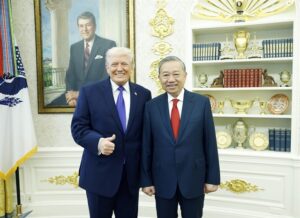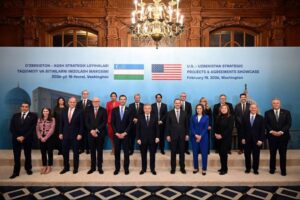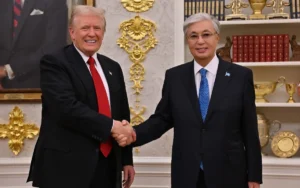U.S. Senate Passes $95.3 Billion Aid Package for Ukraine, Israel

Washington, The Gulf Observer: In a significant legislative move, the United States Senate passed a $95.3 billion aid package for Ukraine, Israel, and Taiwan early Tuesday. The approval comes after months of challenging negotiations, reflecting the persistence of political divisions within the Republican Party over the nation’s international role.
The vote unfolded following a marathon session where a small group of Republicans, opposing the $60 billion allocated for Ukraine, occupied the Senate floor overnight. The dissenting group utilized the final hours of debate to advocate for prioritizing domestic issues over foreign aid. However, 22 Republicans joined nearly all Democrats in a 70-29 vote to pass the comprehensive aid package. Supporters argued that standing by Ukraine is crucial to thwarting potential aggression from Russian President Vladimir Putin and safeguarding global national security.
Senate Majority Leader Chuck Schumer, in collaboration with Republican Leader Mitch McConnell, championed the legislation. Schumer emphasized the bipartisan support, declaring, “With this bill, the Senate declares that American leadership will not waiver, will not falter, will not fail.” The Senate’s endorsement signals crucial support for Ukraine, grappling with significant shortages on the battlefield.
Despite this victory in the Senate, the aid package faces an uncertain future in the House of Representatives. Hardline Republicans aligned with former President Donald Trump, a vocal critic of support for Ukraine, have expressed opposition. Speaker Mike Johnson cast doubt on the package, stating it could be weeks or months before reaching President Joe Biden’s desk, if at all.
Senate leaders consider the passage a positive step, highlighting the bipartisan commitment to addressing international crises. McConnell, particularly focused on Ukraine in recent months, remains determined despite resistance within his GOP conference. The aid package’s journey through the House remains a pivotal point of contention, underscoring the ongoing debate within the Republican Party on matters of foreign assistance.


